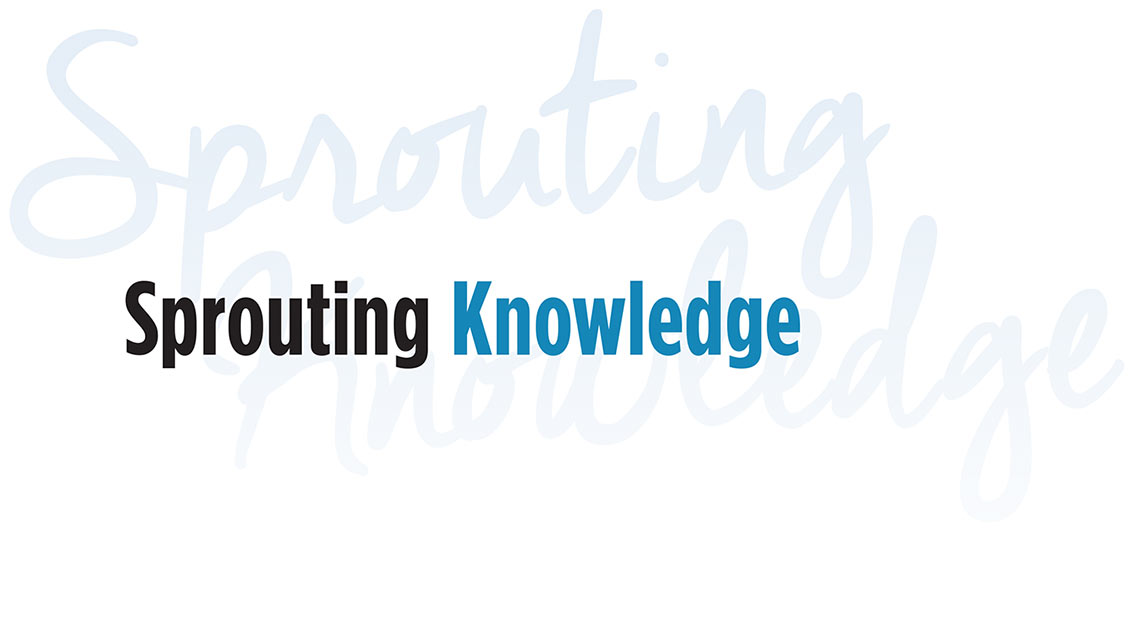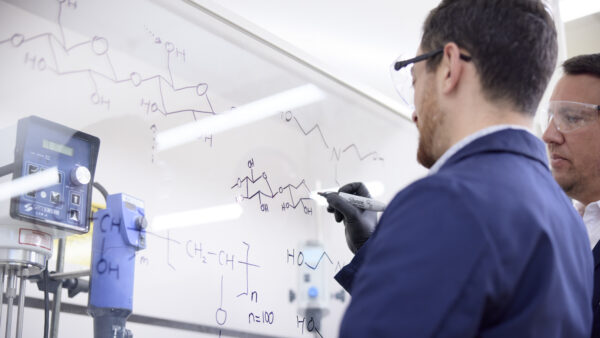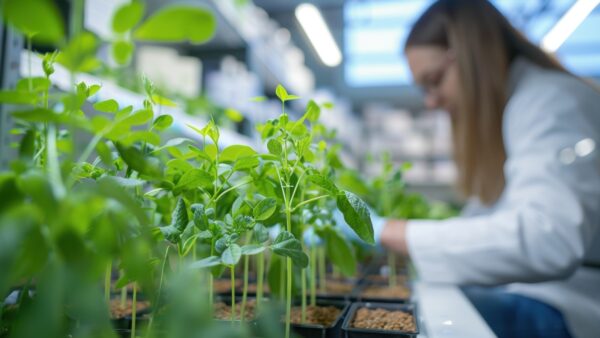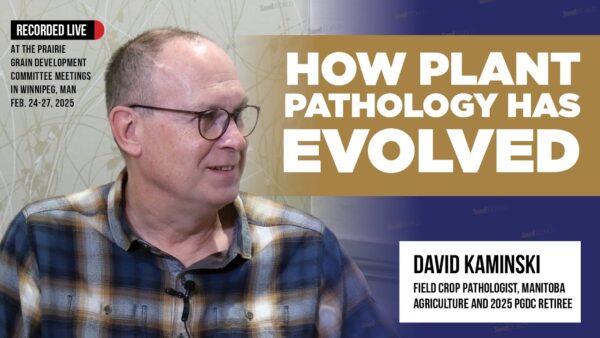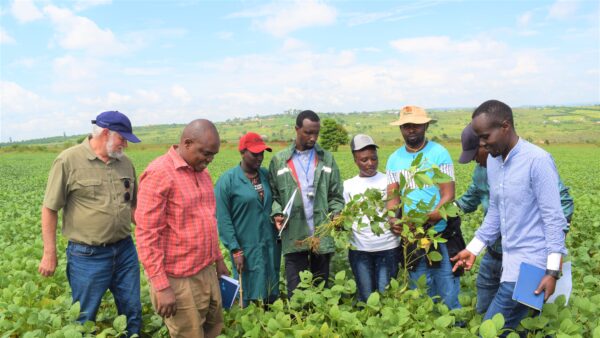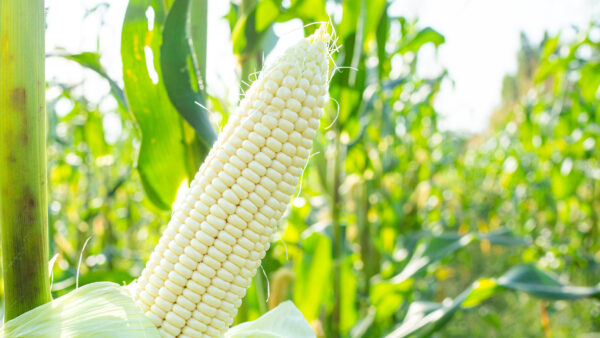Companies dedicate resources to help educate youth about the importance of science and technology, as well as the opportunities within agriculture.
Losing generations of farmers isn’t just a problem for small towns and family operations; it’s also a challenge for the industries charged with feeding the exploding population. To meet the needs of more and more people, in more diverse climates, agriculture needs well-educated, entrepreneurial talent.
Enter seed companies, which are taking on some of the responsibility for educating the next generations of food producers.
Michelle Book, DuPont Pioneer director of community and academic relations, says the company uses an academic outreach application, called My American Farm, developed by the American Farm Bureau Foundation to teach young people about farming and food supply chains.
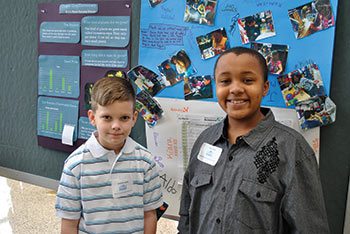
My American Farm was designed to be a fun, online application that parents and teachers can use in and out of the classroom, Book explains.
“Today, we are so removed from the actual growing of our food that many people don’t even realize where their food comes from,” Book says.
Parents can use tablets and smartphones to access the app, while teachers can download it online and use it in the classroom. The app is targeted toward K-12 students.
Book says Pioneer’s academic outreach goals are to engage more students in science and to make sure the public’s knowledge of ag science is accurate. The hope is to expose students interested in science to food production.
“We are trying to grow a more ag science-literate population and want students to be open to the idea and possibility of ag science careers,” Book says.
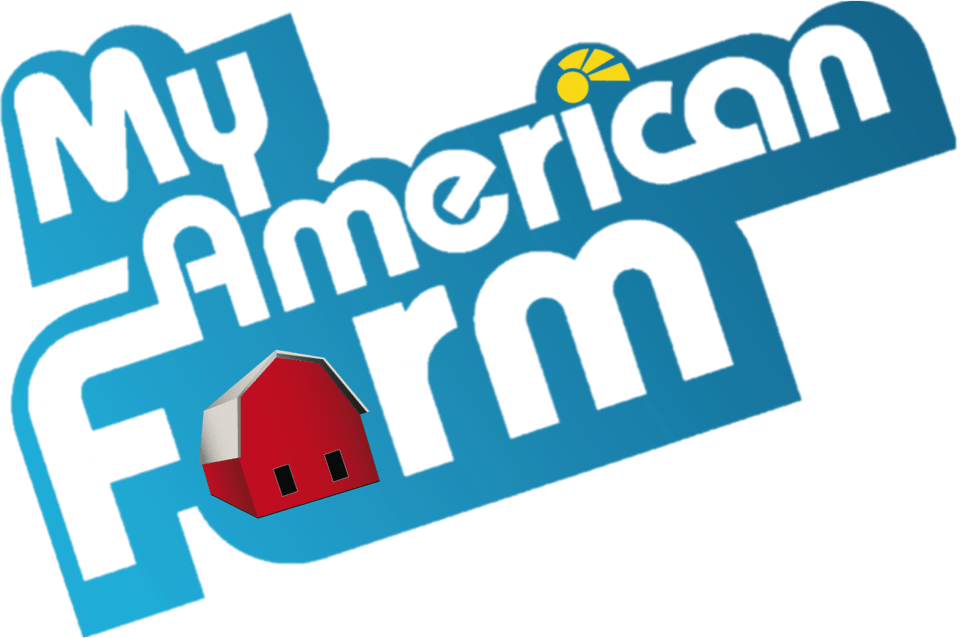 The My American Farm app is part of the My American Farm online education program that teaches kids about math, social studies, language arts and science in the context of agriculture and food production. The site also hosts educational resources for teachers that are mapped to core curriculum.
The My American Farm app is part of the My American Farm online education program that teaches kids about math, social studies, language arts and science in the context of agriculture and food production. The site also hosts educational resources for teachers that are mapped to core curriculum.“We are proud to partner with the American Farm Bureau Foundation for Agriculture on this important initiative to help improve agricultural literacy for kids,” Book says. “Our goal is for all children, particularly those in the pre-kindergarten to sixth grade age group, to have an opportunity to learn about agriculture in a fun and interactive way.”
Bringing Science to Life
Another My American Farm activity Pioneer unveiled at a Farm Progress show was “Garden in a Glove.” The project involved taking a food service glove and placing a cotton ball and a seed in the five fingertips. After watering to make the cotton balls moist, students can tape the glove in a window or place it in a sunny location and watch the five seeds grow.
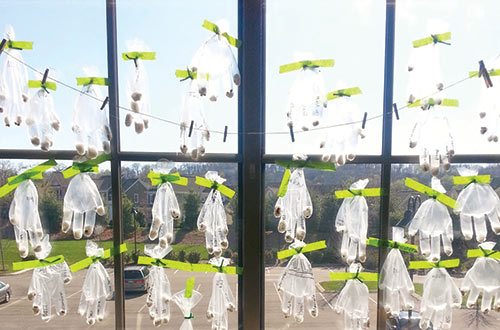
The project has valuable lessons. “Some of these young people have never seen anything grow,” Book says. “They’ve never planted anything.” She adds that at one school, there were students who didn’t realize there is just one ear of corn on each plant, nor did they realize it was growing right behind their house or how much corn it actually takes to make a box of cereal.
So far, DuPont Pioneer is putting considerable financial resources behind it’s ag education initiatives. Since 2010, the company has contributed more than $1 million to American Farm Bureau Foundation, to support My American Farm development, as well as $500,000 to FFA every year.
Plans include launching another partnership with the American Farm Bureau Federation that features an agricultural literacy database. This database would allow access to a variety of ag science-related materials.
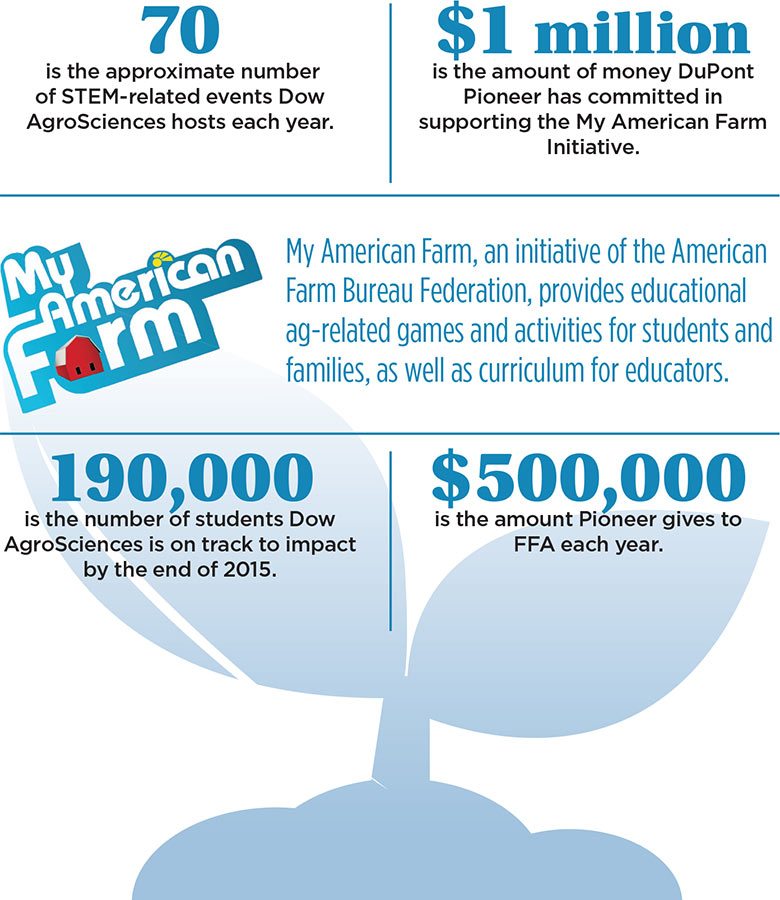
Pioneer also encourages its employees to be ag science ambassadors. Book says they get many requests from teachers and extracurricular activity leaders in the community asking for more information around science and for speakers.
“We are trying to make this easy for our employees and retirees to participate,” she says.
DuPont Pioneer isn’t the only industry giant getting behind ag education. Through its Corporate Citizenship efforts, Dow AgroSciences has conducted science, technology, engineering and math, or STEM, programming for nearly a decade, says David Sousa, Dow AgroSciences public affairs manager.
“We’re focused primarily on the needs of middle school, high school and undergraduate university students,” Sousa says. “We actively support educational institutions, programming and community activities that serve to identify, nurture and provide incentives in the development of tomorrow’s scientists, technicians, engineers and mathematicians.”
He says they work to increase student and public awareness of the significance of STEM in everyday life and as a career and enhance the recruiting and retaining of qualified STEM teachers.
The programming takes place in museums, fairs, schools, libraries and at Dow AgroSciences’ headquarters in Indianapolis, Indiana, which hosts about 70 STEM-related events each year. Its science ambassadors and other employees typically conduct and participate in these events.
Sousa says in a typical year, more than 4,000 people tour Dow’s Global research and development headquarters. A teacher or student will often remark how the curriculum they’re teaching or learning has a practical application in the workplace that helps bridge the gap between theory and practice, he says.
Globally in 2013, the employees of Dow AgroSciences invested more than 16,000 hours to support 13,000 STEM students and teachers. By the end of 2015, Dow AgroSciences is on target to impact more than 4,200 teachers and 190,000 students, globally.
“Our goal is for all children, particularly those in the pre-kindergarten to sixth grade age group, to have an opportunity to learn about agriculture in a fun and interactive way.”
— Michelle Book
“Our hope is that our efforts inspire and nurture students to pursue educations and careers in STEM-related fields and to strengthen the confidence of STEM teachers and encourage them to remain in the teaching profession,” Sousa says. “We are fortunate to have many stories of working with students and teachers when we see their eyes light up because they made a connection from their experiences, classroom or home to the STEM-related activity at hand.”
Future plans include fully implementing the 2012-2015 Corporate Citizenship plan, continuing to support and amplify the efforts of the dozens of STEM-related organizations that Dow AgroSciences is engaged with, and to further harness and apply the passions and interests its employees have for STEM education to reach more students and teachers.
In 2012, Dow AgroSciences collaborated with leading educational institutions and organizations to develop a unified strategic initiative to support STEM teachers and students. Together, it established a framework that addresses gaps in the professional development of teachers and student performance.


